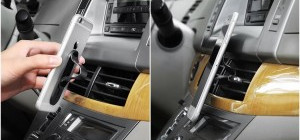 The attitude you have towards your lifestyle and the products and services you buy has more of an impact on your budget than you might think. When you’re looking to make cutbacks and work towards debt solutions, tackling your approach to spending could be the best place to start.
The attitude you have towards your lifestyle and the products and services you buy has more of an impact on your budget than you might think. When you’re looking to make cutbacks and work towards debt solutions, tackling your approach to spending could be the best place to start.
Keeping up with the Joneses
The desire to ‘keep up with the Joneses’ plagues many people’s budgets, especially at a time of financial hardship when many families are eager to keep their problems under wraps. However, this is a very unhealthy attitude to have, especially if your bank balance is low.
Recent research conducted by Quidco revealed that 14 per cent of Brits purchase items simply so others think they are wealthier than they are in reality. A quarter turn to the plastic to fund this enterprise, and this typically results in debt of over £6,200.
The simple act of showing off or keeping up appearances is not worth getting yourself into more serious financial troubles. There is nothing covetable about debt management, whereas being good with money will earn you respect from your peers.
Reflect on your personal goals and achievements and not focus on other people-many situations aren’t truly as rosy as they appear. Take pride in the fact that you are organising your finances rather than purchasing unnecessary goods, and remember that true friends and family don’t value you based on your money.
Can’t resist a special offer?
Some people simply can’t resist an offer-many experience a thrill at the thought of making savings. Although this may seem like a positive attribute when trying to cut spending, the truth is that this habit could actually be an expensive one.
Many people are tempted by the yellow supermarket signs saying buy-one-get-one-free (Bogof) or three-for-two deals, believing that they are getting a bargain. However, many shoppers find themselves throwing the items away down the line.
When it comes to perishable goods, it is important that you do not buy more than you will use. This is extremely wasteful, and it might mean that you are spending more than necessary. If you only need one loaf, pay 80 pence for a single packet rather than £1 for a product on Bogof.
Other types of deals available in supermarkets can also be misleading-Which? research conducted last year showed that companies often increase the price of products before putting them on offer, meaning there are no real savings to be made.
Make a list before you go shopping and stick to it, avoiding unnecessarily large purchases of products you will never use before the expiry date and buying items you already have in the cupboard.
You can find out which products are truly cheapest by comparing the price-per-amount detailed on labels. This allows you to determine whether a 500-gram bag of pasta on special offer is actually a better option than a one-kilogram packet of the same product.
Are branded items worth the price tag?
A number of people are extremely particular about which brands of products they will purchase, with many disregarding goods simply as a result of the name on the label. However, this dismissive attitude can be of huge detriment to your budget.
Many fashion-conscious shoppers will only buy their clothes from well-known designers, but you can look just as good for much less. High-street chain stores and supermarkets, which are far more affordable, mimic the styles on the catwalk so you’re always on trend.
Sometimes, buying discount brands can be a false economy, since the products don’t last for as long or meet the same standards. However, you can circumvent this problem by checking out feedback left by customers online.
SupermarketOwnBrandGuide.co.uk has an extensive database detailing taste scores for everything from Waitrose champagne to Lidl baked beans, but you can find out about the quality of most products by finding them online and reading the customer reviews.
You might also be able to put your mind at risk about the longevity of certain goods, including furniture and technology, by finding out whether it comes with a warranty. Many cheap brands offer ten-year guarantees, so you know you can depend on the quality of the product.
Questions to ask yourself when shopping
Before you head to the cash point, ask yourself a few simple questions. Am I buying this to impress someone else? Do I need this? Could I get a comparable product for cheaper? If any of the answers are yes, reconsider the purchase, and save yourself unnecessary expense.
After working through an IVA with the help of debtfreedirect.co.uk Stef now spends her time writing articles and advising people on money saving tips.







